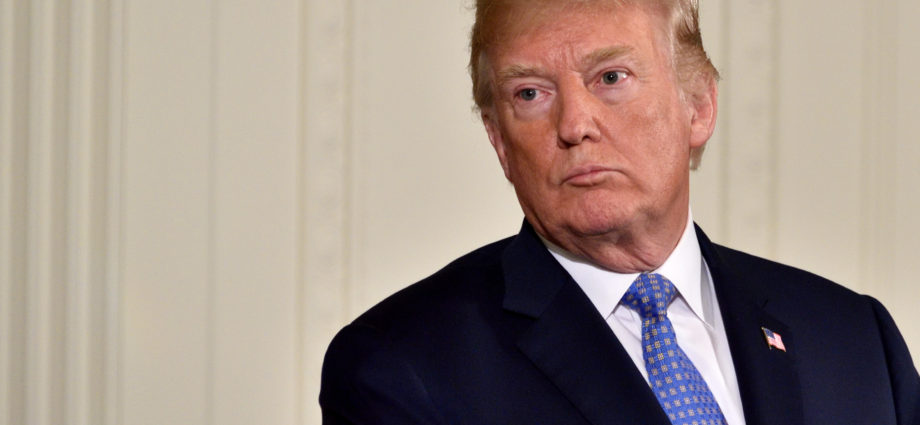
Naomi Schalit, The Conversation
July 30, 2023
Former President Donald Trump was indicted yet again on July 27, 2023, by federal prosecutors. While many were anticipating an imminent indictment related to Trump’s actions on Jan. 6, 2021, when a group of his followers violently stormed the U.S. Capitol in an attempt to disrupt the certification of Democrat Joe Biden’s election, the new indictment instead added to the charges Trump already faced for hoarding, mishandling and illegally sharing presidential documents after he left office and refusing to return them.
The new indictment – called a “blockbuster” on CNN by former Manhattan prosecutor Karen Agnifilo – alleges that Trump attempted to “delete security camera footage at the Mar-a-Lago Club to conceal information from the FBI and grand jury” by telling a maintenance worker at the club to erase it. That worker, named in the indictment as Carlos De Oliveira, also faces charges now of obstruction in the new indictment.
The Conversation has published stories by experts on various aspects of the documents case and the unprecedented indictment of a former president. Here are a selection of them to provide background on the newly filed charges.
1. What are classified documents, anyway?
Before he entered academia, University of Southern California international relations scholar Jeffrey Fields worked for many years as an analyst at both the State Department and the Department of Defense. He held a top-secret clearance and “frequently worked with classified information and participated in classified meetings.”
Fields explains that “classified information is the kind of material that the U.S. government or an agency deems sensitive enough to national security that access to it must be controlled and restricted.”
There are several degrees of classification, he writes. “Documents related to nuclear weapons will have different classification levels depending on the sensitivity of the information contained. Documents containing information related to nuclear weapons design or their location would be highly classified.”
Such documents, writes Fields, “must be handled in a way that protects the integrity and confidentiality of the information they contain.” Want to know more? Fields helps you understand the different classification levels, and who gets to determine what levels each document is assigned.
2. Why is Trump being charged under the Espionage Act?
The documents case rests on provisions of the Espionage Act, which, despite its name, covers a lot more crimes than just spying.
Loyola University Chicago’s Thomas A. Durkin and Joseph Ferguson, attorneys who specialize in and teach national security law, write that “one portion of the act … does relate to spying for foreign governments, for which the maximum sentence is life imprisonment.”
More commonly, they write, as with the Trump investigation, “the act applies to the unauthorized gathering, possessing or transmitting of certain sensitive government information.”
A violation of the Espionage Act, then, does not require an intention to aid a foreign power. And Democrats have violated the act: “Two recent senior Democratic administration officials – Sandy Berger, national security adviser during the Clinton administration, and David Petraeus, CIA director during the Obama administration – each pleaded guilty to misdemeanors under the threat of Espionage Act prosecution,” write Durkin and Ferguson.
3. No president is above the law
Trump has attacked the head of the Department of Justice investigations into his conduct, Special Counsel Jack Smith, as “deranged.” He’s declared that the previous indictment represented “weaponized” politics. After the new indictment was revealed, he told Fox News that it constituted “election interference at the highest level” and said the allegations were “ridiculous.”
But national security law scholar Dakota Rudesill, who teaches at The Ohio State University, says the documents prosecution of Trump is lawful, constitutional, precedented, nonpartisan and merited.
“Trump and his allies have argued that it is completely inappropriate for the former president to be charged,” writes Rudesill. “But no part of the Constitution, no statute and no Supreme Court precedent sets a former chief executive above the law.”
American history, Rudesill reminds us, “is replete with criminal charges against state officials, vice presidents – a former one during the founding era, and a sitting one in the 1970s – members of Congress and other prominent politicians.”
Rudesill’s essay walks readers through the charges Trump has made about the investigation – and the charges made by the investigators against Trump.
“Trump is right that his is inevitably a sensitive case because of his continued presence in the political arena,” Rudesill writes. “What he does not acknowledge is that maintaining the bedrock legal principle of equal justice requires avoiding twin hazards: politically motivated prosecutions and exempting elite politicians from the law.”
4. The campaign will go on
Despite the extraordinary circumstances of facing multiple criminal indictments, there’s nothing stopping Trump from moving ahead with his presidential campaign.
Article II of the U.S. Constitution sets forth very explicit qualifications for the presidency: The president must be 35 years of age, a U.S. resident for 14 years and a natural-born citizen, writes legal scholar Stefanie Lindquist of Arizona State University.
“In cases involving analogous qualifications for members of Congress, the Supreme Court has held that such qualifications form a “constitutional ceiling” – prohibiting any additional qualifications to be imposed by any means,“ she writes.
So, because the Constitution does not require that the president be free from indictment, conviction or prison, says Lindquist, “it follows that a person under indictment or in prison may run for the office and may even serve as president.”
That may be hard, Lindquist acknowledges.
“There seems no question that indictment, conviction or both – let alone a prison sentence – would significantly compromise a president’s ability to function in office,” says Lindquist. “And the Constitution doesn’t provide an easy answer to the problem posed by such a compromised chief executive.”
In other words, the country is in uncharted territory.
Subscribe to our newsletter.
Naomi Schalit, Democracy Editor, The Conversation
This article is republished from The Conversation under a Creative Commons license. Read the original article.


